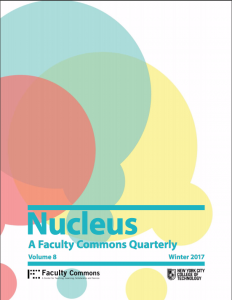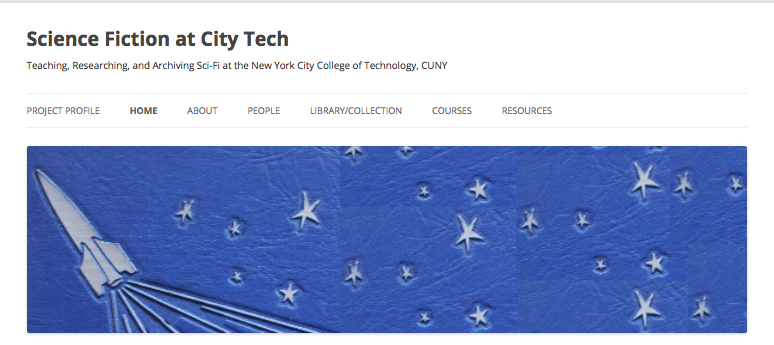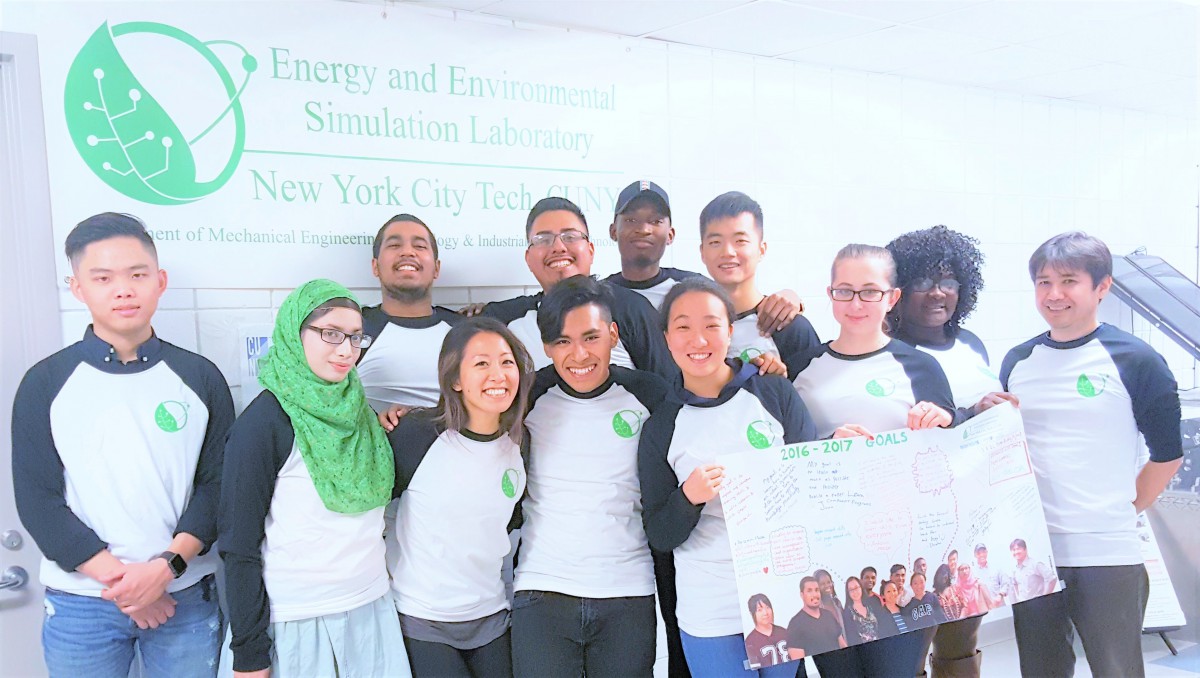 This week we’re spotlighting the recent issue of the Nucleus (Winter, 2017), our Faculty Commons Quarterly. This season’s issue features pieces from faculty about the creative ways they’ve used the OpenLab in the context of their courses and/or research. Specifically, faculty discuss engaging students through creative and interactive assignments that incorporate multiple forms of media and dialogue, how the open and archival aspects of the OpenLab enable past students to share tips and strategies with newer students despite never meeting in person, how course sites can act as nodes in larger networks of resources that may benefit students academically, professionally, or otherwise, how to carry out collaborative student-faculty research projects, and how other innovative learning resources such as OERs and WeBWorks enrich students learning AND can help keep educational costs down for students. We hope you enjoy!
This week we’re spotlighting the recent issue of the Nucleus (Winter, 2017), our Faculty Commons Quarterly. This season’s issue features pieces from faculty about the creative ways they’ve used the OpenLab in the context of their courses and/or research. Specifically, faculty discuss engaging students through creative and interactive assignments that incorporate multiple forms of media and dialogue, how the open and archival aspects of the OpenLab enable past students to share tips and strategies with newer students despite never meeting in person, how course sites can act as nodes in larger networks of resources that may benefit students academically, professionally, or otherwise, how to carry out collaborative student-faculty research projects, and how other innovative learning resources such as OERs and WeBWorks enrich students learning AND can help keep educational costs down for students. We hope you enjoy!
A hearty thank you to the Faculty Commons for their enthusiasm and support with this issue and always.






